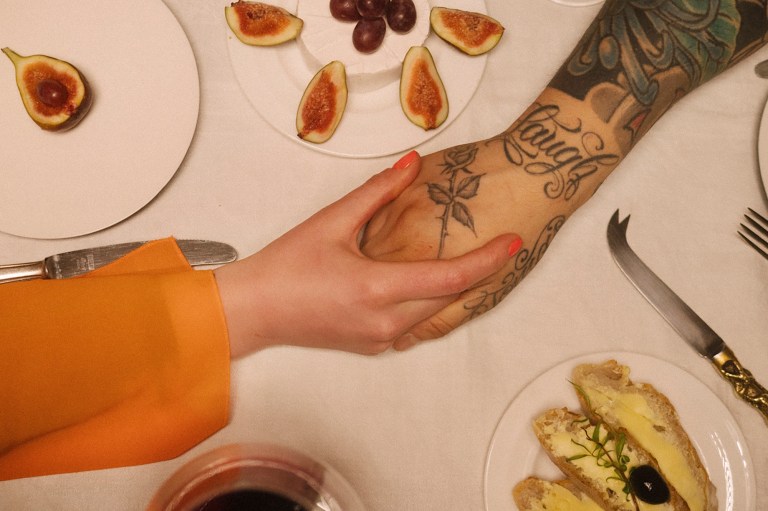
5 Things Only Women Who’ve Had A Lot of Boyfriends Will Understand
Women who’ve had a lot of dating partners, boyfriends, fiancés – even in some cases, full-on husbands, have been shamed by society for a long time in contrast to their male counterparts, but it’s time to clear up some myths, double standards, and misconceptions. Here are five things only women who’ve had a lot of…
As someone who’s had many long-term relationships as well as many dating partners on top of that, I’ve always been thrilled to see movies like the classic comedy Easy A and Jennifer Lopez’s recent movie, This Is Me…Now challenge double standards and stereotypes. These types of movies pay homage to a diverse group of women, showcasing how they’re treated when they’re labeled with a certain “reputation.” In Easy A, a movie well ahead of its time, the very perception of Emma Stone’s character Olive Penderghast having many “partners” sparks scandal in her school, causing her to be the object of salacious and damaging rumors. Jennifer Lopez’s reputation for hopping from marriage to marriage has been widely criticized by the media, and she pokes lightheartedly at these speculations throughout her new movie while offering a more nuanced perspective. Women who’ve had a lot of dating partners, boyfriends, fiancés – even in some cases, full-on husbands, have been shamed by society for a long time in contrast to their male counterparts, but it’s time to clear up some myths and misconceptions. Here are five things only women who’ve had a lot of boyfriends will understand deeply:
You love the euphoric highs and honeymoon beginnings of romantic relationships – yet simultaneously, you feel suffocated by relationships and can’t wait to reclaim your freedom.
People assume that women who have had multiple relationships are addicted to romantic relationships. In a way, they can be, but they also love their freedom. More often than not, they are actually addicted to the beginnings of relationships – the euphoric high point of each relationship where everything is happy, passion-filled, and perfect – usually before boredom or dissatisfaction kicks in when their partners end up falling short of their standards or reveals red flags. Some of these women are picky and selective about the partner they want to end up with long-term and thus have a strong cut-off game; others may not be, yet still they feel restless in a long-term commitment, even though they have a craving for connection. This is why they tend to get antsy (in some cases, rightfully so) once the honeymoon period is over and start seeing the red flags that always existed behind rose-colored glasses more clearly. Other women may even feel trapped or bored in long-term relationships in general. They don’t like the feeling of being too attached or dependent on anyone, so to avoid that suffocating feeling, they “release” themselves quickly so they are free to move forward into a new experience that to them feels exciting and filled with the possibility of being in the ultimate “dream relationship.” Of course, if you do this without fully healing or processing from your past relationships, you may be less likely to recognize what healthy love looks and feels like.
You seem to jump from relationship to relationship, yet you tend to have high standards for what you want out of a dream partner.
The paradox of being a woman who’s had many boyfriends is that you know what it’s like to be with partners who treat you very well, so you also know what it’s like when you’re being mistreated by contrast. If you’re not with the right partner who can meet your needs and who can make you feel happier on the daily than you do being on your own or with a truly compatible partner, you’ve ultimately learned that it’s not worth it – just by comparison. Your relationship history has shown you what top-tier romance and sizzling chemistry feels like and what being cared for attentively and authentically feels like – so you end up preferring your freedom when you encounter a relationship that does not feel as nourishing or fulfilling as the last (or the best). The stereotype is that women who jump from relationship to relationship just don’t know what they want, but in reality, if you have a long relationship history, you also develop high standards for what you expect out of a long-term partner over time – which is why you’ve kept searching in the first place.
You love being alone. Singlehood isn’t some miserable period for you – it’s a freaking break and vacation.
While others are bemoaning their singlehood, you just simply cannot relate. You just became single five minutes ago, so now it’s finally time to relax and heal (joking – kind of). Being alone feels like bliss because your long history of relationships has ensured that you know not only the pros of being in long-term relationships – but also the cons. You know what it’s like to be in complete joy and peace without having to worry about anyone else, in stark contrast to the frenzied and anxious feeling you experience in relationships. You know what it’s like to be in love, but also to be distracted from your goals or have your peace interrupted due to arguments or fixations resulting from your partners disappointing you. You know what it’s like to be with a partner who is fully committed to you and sees only you – and a partner who’s a bit more shady and evasive. You know what it’s like to feel ecstatic on your own or with a compatible partner and also what it’s like to feel not fulfilled with someone who doesn’t meet your needs. Due to the depth of your experiences, you’ve seen it all and solitude can feel preferable to meeting false soulmates.
You like keeping your partners at a comfortable distance.
People might think you get attached quickly, but you can also be pretty avoidant and protective, and may have a natural reflex for trying to sabotage relationships that don’t seem right for you ahead of time – sometimes, this subconscious protective mechanism can actually work in your favor, getting rid of partners you may not consciously want to flee from, but subconsciously and instinctively know are walking red flags. But other times, you’d be better off using your discernment from the very beginning to filter out toxic relationships and avoid wasting time at all. This habit may be due to your past experiences or just an avoidant attachment style in general. People assume that those who jump from relationship to relationship are those who have an abundance of love to give – but really, sometimes they’re just avoiding their own traumas, or avoiding doing the inner healing work that would enable them to enjoy their own company in peace. Other times, they’re searching for a very special and rare type of person, one they connect with on multiple levels, and most partners in the modern dating world can fall short. There’s a kind of restlessness and craving that comes with always looking for “the one” – and there’s a sense of serenity when you go within and finally feel truly aligned with yourself, your healing, and your happiness.
In the past, you’ve accumulated a lot of essential knowledge about relationships. As a result, you’re not only picky and selective – you now also have a strong cut-off game.
A woman having a lot of dating and relationship experience tends to be stigmatized due to double standards in society, but it can actually be an asset in some cases, so long as they’re willing to learn and grow from these experiences. You have plenty of history to back up the fact that you know you could be treated better, and plenty of experiences to compare and contrast different types of people, communication habits, boundaries, sexual and intellectual chemistry, and relationship patterns. As a result, you’ve developed some pretty air-tight standards and boundaries for relationships moving forward. Your expectations tend to be high because you’ve learned extensively exactly what you do want – and what you don’t. If you’re at that point of your journey where you’ve healed from and processed these relationships, this knowledge can empower you, and make you develop a strong cut-off game for toxic or otherwise incompatible people.











